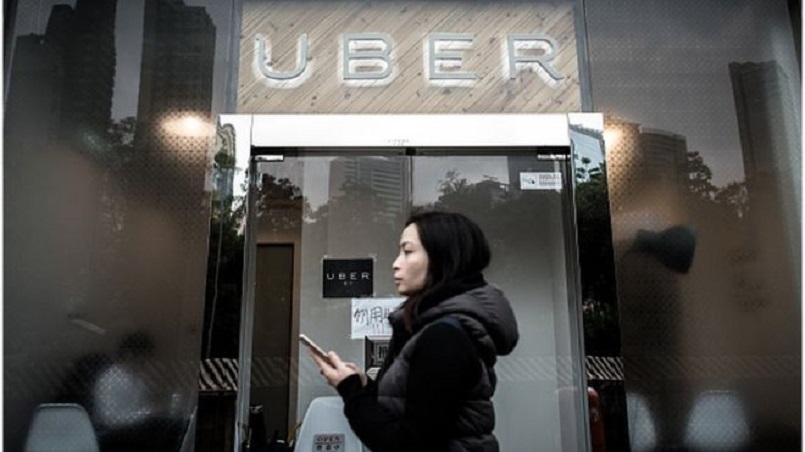
Taxi-booking app Uber has agreed to sell its business in China to rival Didi Chuxing.
The two firms have been fierce competitors, but Didi Chuxing dominates the Chinese market with an 87% share.
Uber China launched in 2014 but has failed to make any profit so far.
Cheng Wei, founder and chief executive of Didi Chuxing, said the two companies had "learned a great deal from each other over the past two years in China's burgeoning new economy".
He added that the deal would "set the mobile transportation industry on a healthier, more sustainable path of growth at a higher level".
As part of the deal, Mr Cheng will join the board of Uber, while Uber chief executive Travis Kalanick will join Didi's board.
Uber's China business will retain its separate branding while US-based Uber Technologies will hold a stake of about 17.5% in the combined company.
Didi Chuxing is backed by Chinese internet giants Tencent and Alibaba, and has also invested in Uber's rival US taxi-booking service Lyft.
Big losses
Uber has been struggling to break into the Chinese market despite having Chinese search engine Baidu as an investor.
In February, the company admitted it was losing more than $1bn a year in China, spending huge sums to subsidise discounted fares.
"Funding their China dreams was becoming too expensive for Uber," Duncan Clark, chairman of Beijing-based consultancy BDA, told the BBC.
"Many saw it as an obstacle to their own IPO (Initial Public Offering)."
Uber chief Travis Kalanick said that "as an entrepreneur, I've learned that being successful is about listening to your head as well as following your heart".
"Getting to profitability is the only way to build a sustainable business that can best serve Chinese riders, drivers and cities over the long term."
The fierce rivalry had led both companies to heavily subsidise their journeys. The merger is likely to see fewer such subsidies.
"One thing to watch carefully is how quickly consumers feel the impact as subsidies are withdrawn," Mr Clark added.
